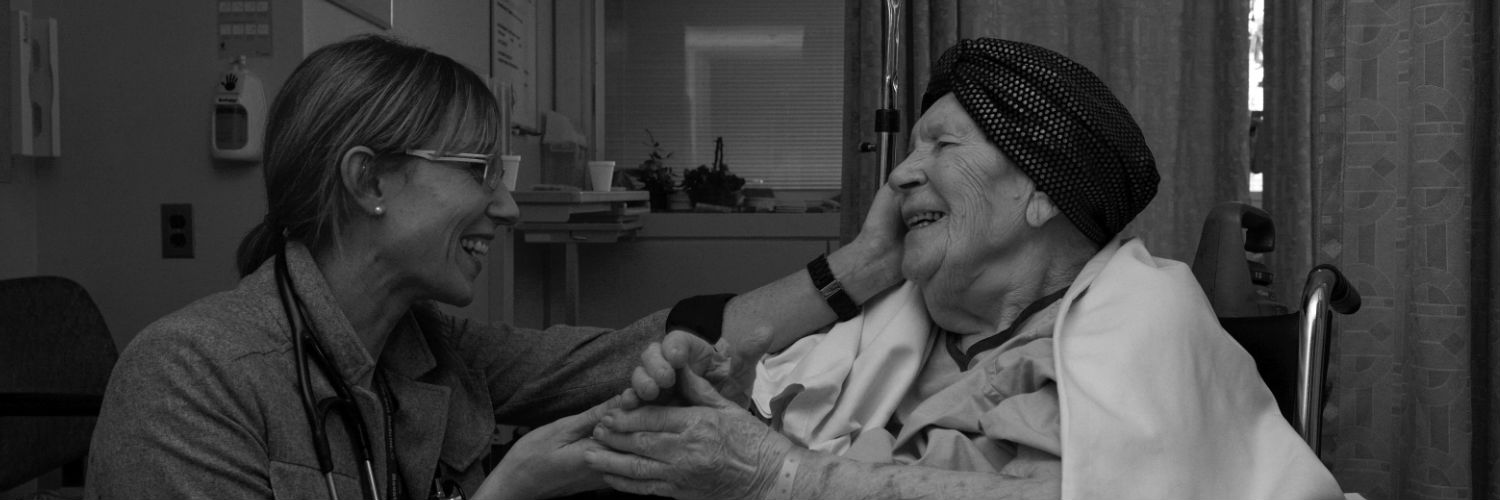Stigma around mental illness can affect any age group. For older adults, stigma can result from growing up in a family or culture where people didn’t talk about their emotions or feelings and were taught to “tough it out.”
“It’s that ‘stiff upper lip culture’ that a lot of older adults have been raised in, where they see having a mental illness as a character flaw or dismiss it all together,” says Dr. Irina Nica-Graham, Geriatric Psychiatrist in the Outpatient Geriatric Psychiatry Program at Mount Sinai Hospital. “I also see patients that are frail and tired from taking various medications who believe their psychiatric symptoms are caused by their physical symptoms. They believe it’s normal to feel tired all the time and not interested in things they used to be interested in.”
It’s not normal. Dr. Nica-Graham emphasizes the need for caregivers and primary care providers to recognize the signs of mental illness in older persons in order to get them the help they need. “There’s a perception that an older person not wanting to participate in activities or feeling down can just be a symptom of ageing instead of mental illness,” Dr. Nica-Graham says. “Family doctors and primary care providers should keep an eye out if there’s a change in the person’s well-being and ask patients how they’re feeling.”
Some signs of mental illness primary care providers and family members can look out for are:
- Changes in eating habits or weight.
- Loss of pleasure from favourite things or activities.
- Sleeping problems
- Reduced energy and feeling tired more often.
- Feeling sad, lonely or anxious.
Dr. Nica-Graham emphasizes that family doctors and primary care providers are often the gate keepers to treatment for older adults with mental illness. For example, diagnosing psychosis in older adults can be a challenge. “Around 60 per cent of late onset psychosis in older adults is due to medical causes. It’s important for primary care providers to do a full medical workup and not assume it’s a primary psychosis,” Dr. Nica-Graham says. “Psychiatric disorders in older adults cover a whole spectrum from mild to very severe cases but there is help available for everyone on the spectrum.”
The message of hope is something Dr. Nica-Graham emphasizes. She wants older persons and their caregivers to know that there is help available. “I want older adults to know that they don’t have to dismiss their need for treatment believing they have to ‘tough it out’ or think that they will take resources from someone who needs it more than them,” she says. “Most importantly, I don’t want older adults to believe that nothing can be done to help.”
Identifying the signs of mental illness, discussion of resources and more will be discussed in depth at Dr. Nica-Graham’s Healthy Ageing 101 Session Managing Our Mental Health and Wellness As We Age on April 20, 2021 at 12 p.m. EST by Sinai Health and the University Health Network’s Healthy Ageing and Geriatrics Program in partnership with the National Institute on Ageing.
“My talk will focus on how depression, anxiety and psychosis present and manifest in older adults,” Dr. Nica-Graham says. “And I want to emphasize that there is help and support available. There is a reason to hope.”
Register for Dr. Nica-Graham’s Healthy Ageing 101 session on April 20, 2021 here.
Helpful Resources:
Sinai Health and the University Health Network’s Healthy Ageing and Geriatrics Program Health Education Resources:
Managing Common Mental Health Disorders in Older Adults
Recognizing and Managing Anxiety
Recognizing and Managing Depression
Other Resources:
Canadian Coalition for Seniors Mental Health

